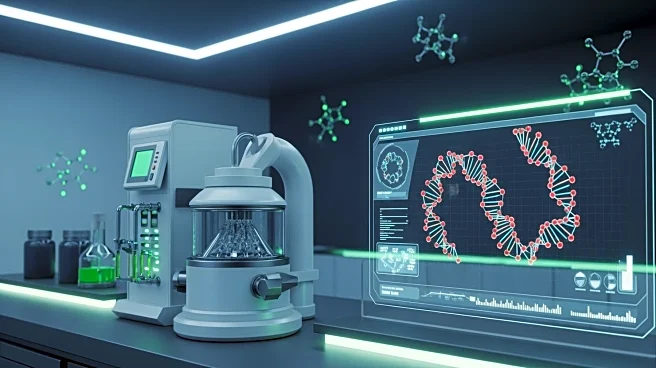What's Happening?
BIOVECTRA and Revolution Biomanufacturing have announced a partnership to provide integrated mRNA design and GMP production services. This collaboration allows BIOVECTRA access to Revolution Biomanufacturing's proprietary platforms for optimizing untranslated
regions and codon usage, enhancing mRNA stability and translational efficiency. The partnership offers a seamless workflow from mRNA sequence design to sterile drug product manufacturing, supporting customers with end-to-end development and production capabilities. This integration aims to reduce risks associated with supply disruptions and miscommunication, providing a reliable path from design to drug product.
Why It's Important?
The partnership between BIOVECTRA and Revolution Biomanufacturing is significant for the biotechnology industry, as it streamlines the process of developing mRNA therapeutics. By combining expertise in sequence optimization and GMP manufacturing, the collaboration enhances the efficiency and reliability of mRNA production. This could accelerate the development of mRNA-based therapies, which are crucial in treating various diseases, including genetic disorders and cancers. The integration of advanced technologies may also lead to cost reductions and improved accessibility to mRNA therapeutics, benefiting both developers and patients.
What's Next?
The collaboration is expected to facilitate the development of next-generation mRNA therapeutics, with potential applications in vaccines, gene-editing therapies, and other nucleic-acid programs. As the partnership progresses, stakeholders may anticipate further advancements in mRNA technology and production processes. The success of this collaboration could encourage similar partnerships in the industry, fostering innovation and competition in mRNA therapeutics.
Beyond the Headlines
The partnership highlights the growing importance of mRNA technology in modern medicine, particularly in the wake of the COVID-19 pandemic. As mRNA-based therapies become more prevalent, ethical considerations regarding genetic modification and access to treatment may arise. The collaboration also underscores the need for robust supply chains and reliable production processes in the biotechnology sector.
















